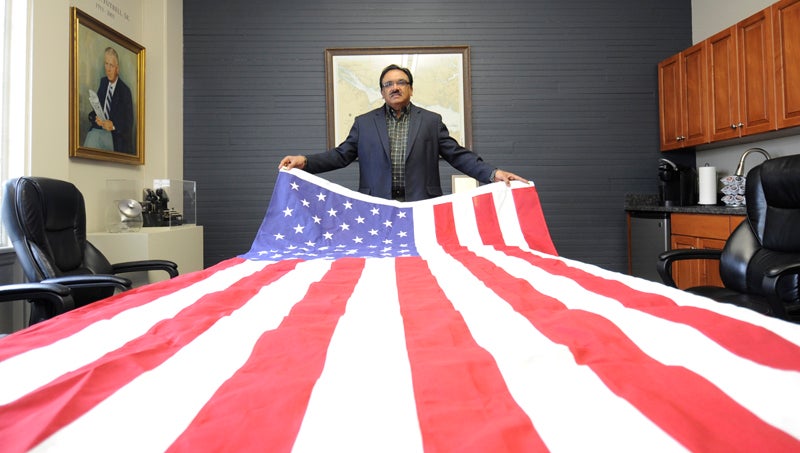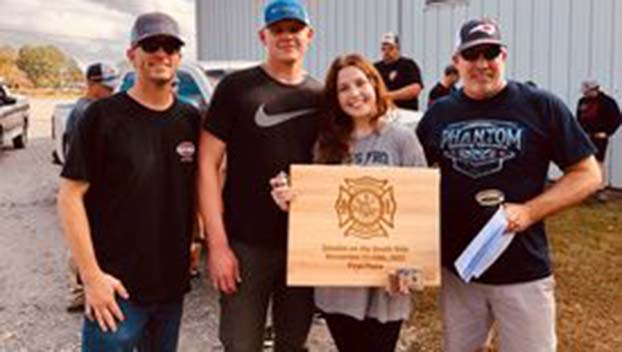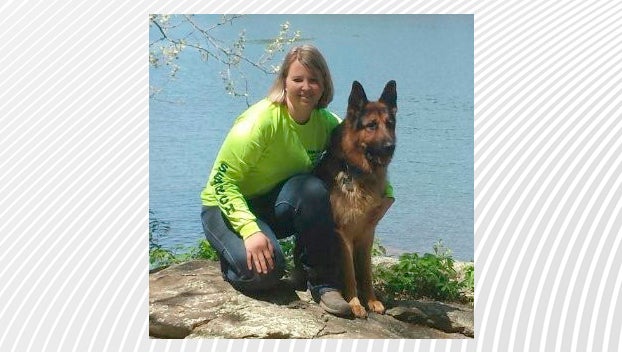Chocowinity family honored with flag flown over U.S. Capitol
Published 7:40 pm Wednesday, April 19, 2017

- GREATEST HONOR: Cypress Landing resident Vimal Kolappa holds the American flag that was flown over the U.S. Capitol on Feb. 28 in honor of his mother, Vimala Padmanabhan Kolappa, who died on Feb. 26. (Vail Stewart Rumley/Daily News)
Vimal Kolappa looks down at the cardboard box spilling red and white fabric from its sides.
“Once you take it out of the box, you can’t put it back in,” he laughed. “It’s like toothpaste out of the tube — you can’t put it back in.”
Inside the box is a massive American flag, proudly stating “Made in the U.S.A.” on its label. How it came to be in his possession is a story of immigration, the American Dream, friendship and loss.
The flag is not only a symbol of America, but of remembrance of Kolappa’s mother, Vimala Padmanabhan Kolappa, who died in India on Feb. 26. Two days later, it was flying over the U.S. Capitol at the request of U.S. Rep. George Holding (R-NC).
“It is (a) great honor. It is one of the greatest honors to the Indian community,” Kolappa said.
Kolappa has been a Beaufort County resident for nearly three decades — his children attended Beaufort County schools; he and his wife, Dr. Kalavathi Kolappa, live in Cypress Landing. Owner of East Coast Hospitality LLC, Kolappa currently owns and operates 16 franchise hotels and is constructing eight more. His head office is in Washington; his work takes him many places. But it’s through his other work advocating for North Carolina’s Indian population — holding fundraisers and supporting candidates who, in turn, actively support the Indian community — that Kolappa met Holding.
“He has been very instrumental in helping the Indian community and making inroads with doing business with India,” Kolappa said. “He has always been very helpful not only to the Indian community, but for all of his constituents.”
Over the past eight years, the two have become friends, and it was an invitation to son Kamal’s wedding that led to Holding’s introduction to Kolappa’s mother. At the news of her death, Holding requested a flag be flown in her honor, courtesy of the Capitol Flag Program. The program began in 1937 after a member of Congress asked for a flag that had flown over the Capitol. Today, the program fulfills an average of 100,000 requests from U.S. senators and representatives. Each flag is issued a certificate stating when the flag was flown over the Capitol and the name of the group or individual for which it was flown. With Kolappa’s flag also came a note of condolence from Holding.
It was a first, Kolappa said — for him, for North Carolina’s Indian community and for the nation’s Indian population of nearly 1.4 million.
“He knew that there was nobody in the Indian diaspora in America for whom this had been done,” Kolappa said. “It was a surprise — a total surprise to me. I was very touched and surprised. … This is like a lifetime achievement award. I’ll put it like that.”
To Kolappa, the gesture was in keeping with a brand of generosity he says is unique to Americans — a generosity that he’s experienced many times since he came to the U.S. in 1976, a 22-year-old student with all of $8 in his pocket.
It was when he and his wife moved to North Carolina — Kolappa, a new master’s in business graduate of Chicago’s Roosevelt University — that the young couple experienced just such generosity. A promised job in banking became a hiring freeze due to the savings and loan crisis; Kalavathi Kolappa found work as a nursing assistant to support them. On her second day on the job, her coworkers found out the couple had no furniture in their apartment and decided to remedy that.
“We are what you call ‘poor folks’ at the time,” Kolappa said.
Two pickup trucks full of furniture, food and volunteers arrived at the Kolappas’ two days later.
“I came back into the apartment in the evening. … I thought I had opened the wrong apartment,” Kolappa said. “Really, that it is how good the people are in North Carolina.”
From that humble beginning, Kolappa now employs 300 to 400 people. Kalavathi Kolappa is outpatient director with Vidant Behavioral Health; daughter Kavitha is a psychiatry postdoctoral fellow working at Harvard Medical School; son Kamal is a cardiologist in North Carolina.
“Both are from Washington public schools,” Kolappa said of his children. “So if somebody comes and tells you that only your children will make it coming from private schools, that is not true.”
Kolappa and his family are the epitome of the American Dream, fulfilled at least in part by the tolerance and kindness they’ve experienced during their journey, he said.
“Realistically, if you ask me — I talk about this quite often in gatherings, in our gatherings — if you look at it, what the actual born American citizens lack is they have not seen the rest of the world, so there is always a feeling that they don’t have enough,” Kolappa said. “This country is the heaven on earth. I am saying this dispassionately. There is nothing better on earth, and the south is the best place to live. The people are so nice.”




